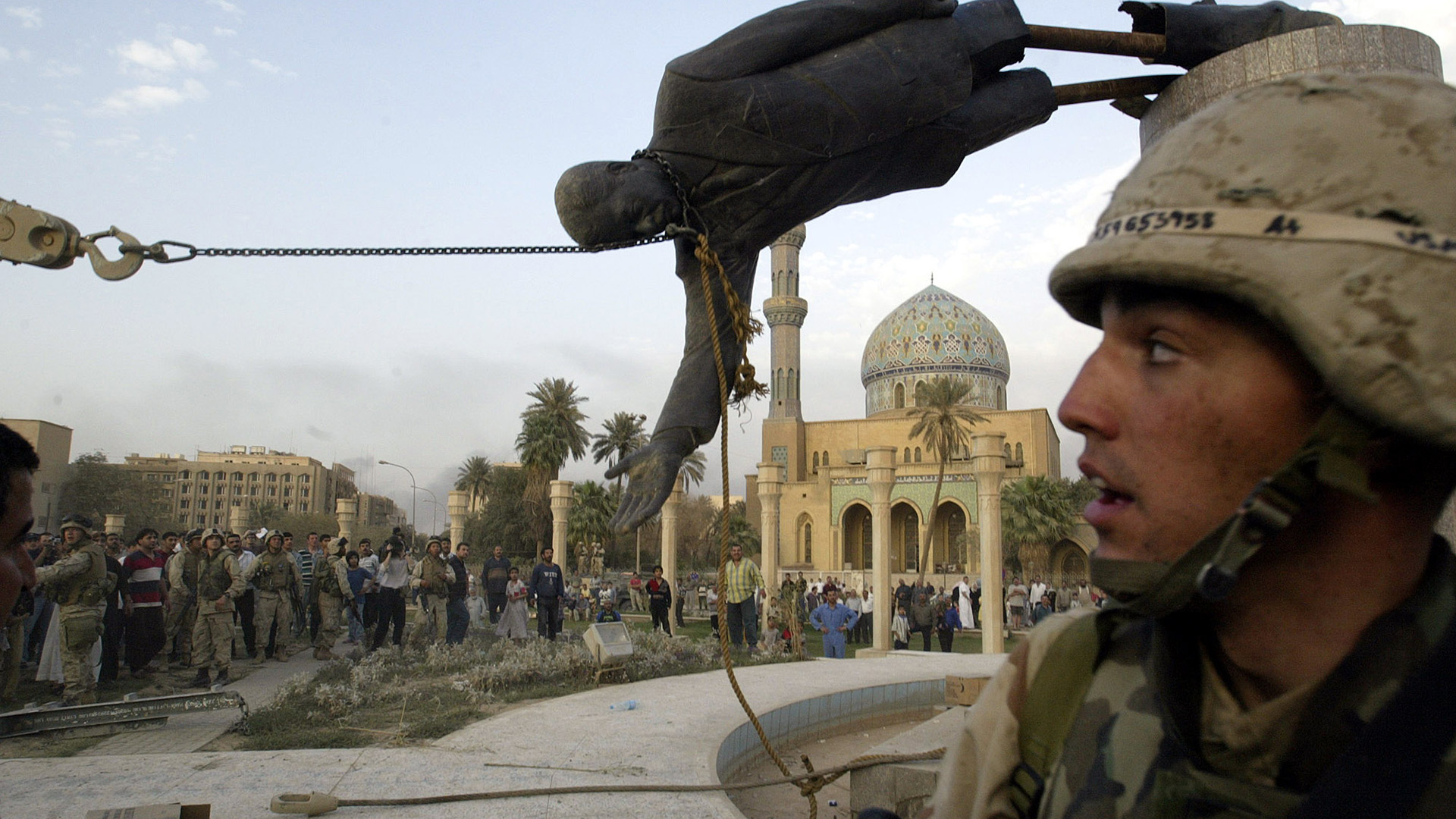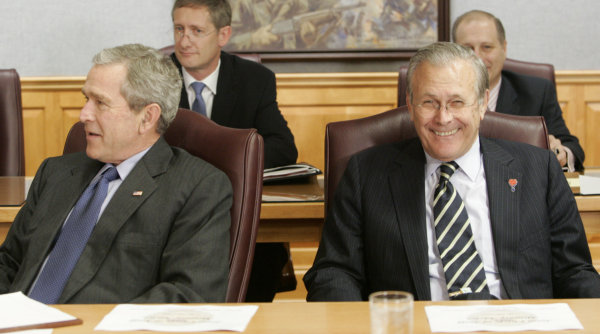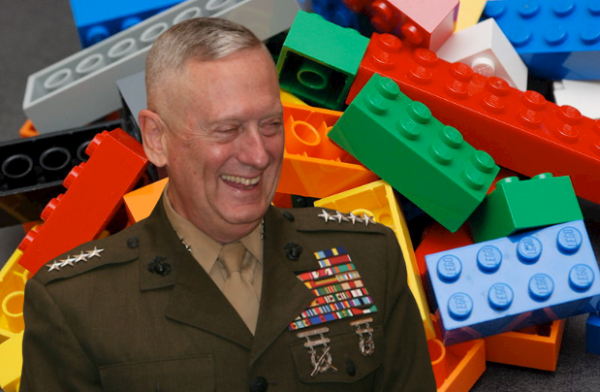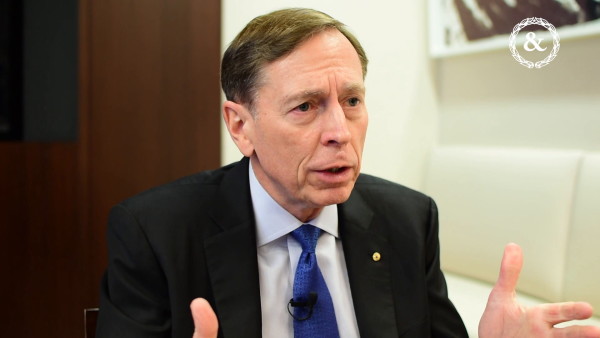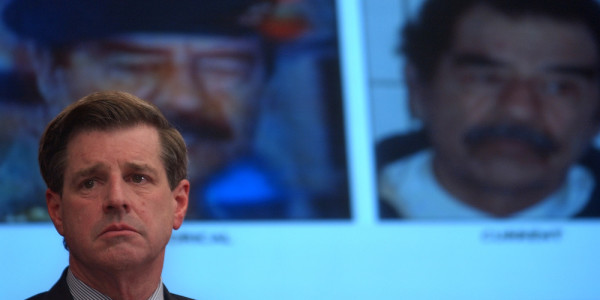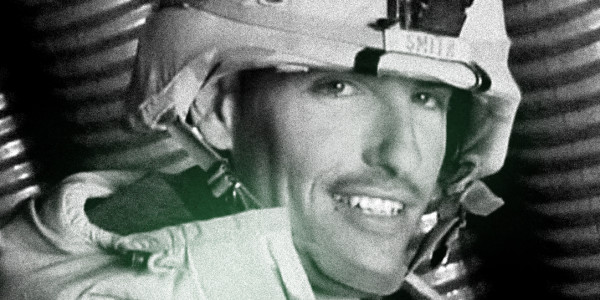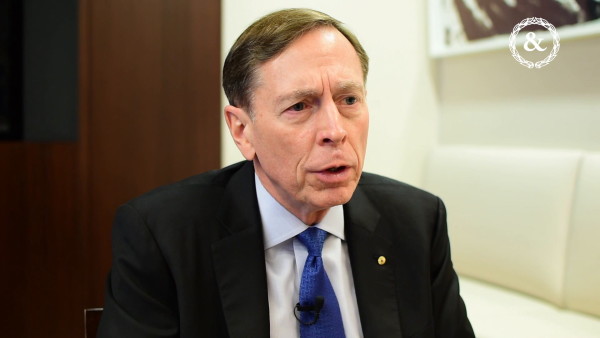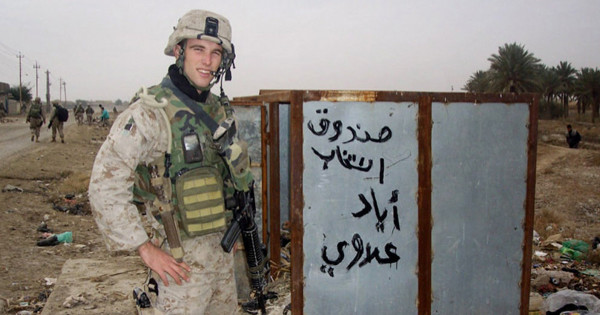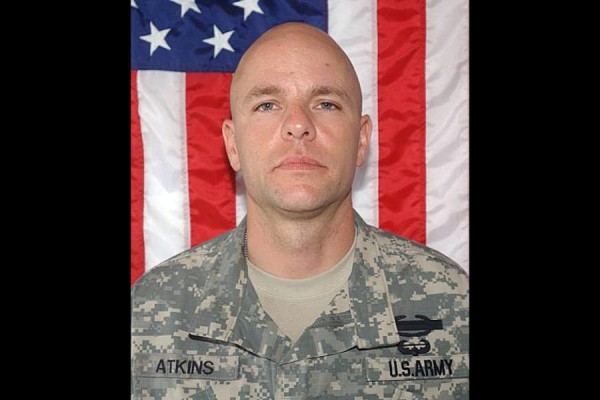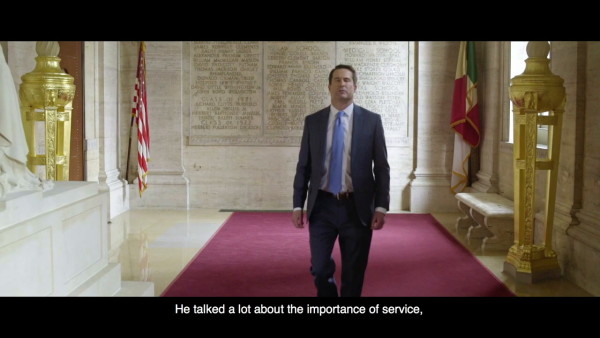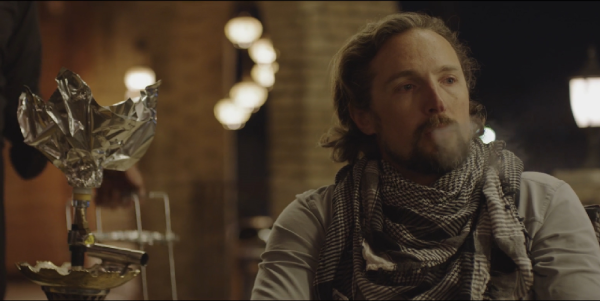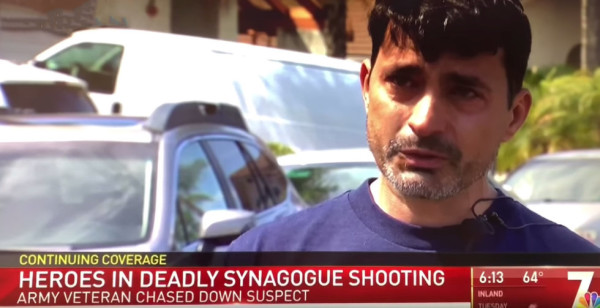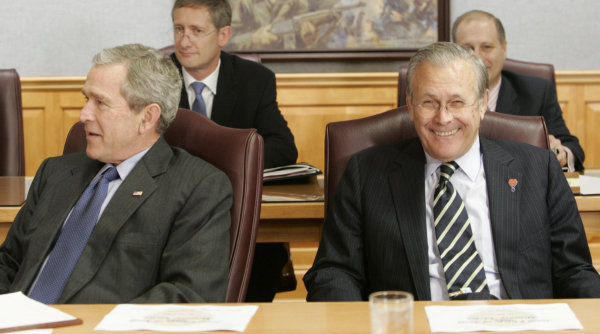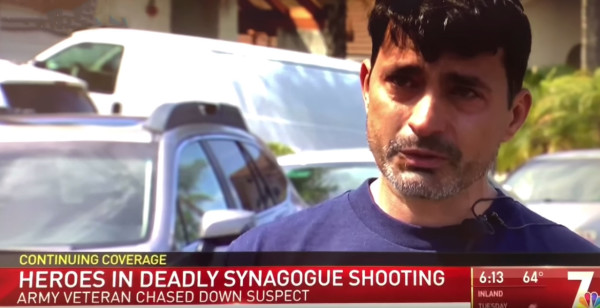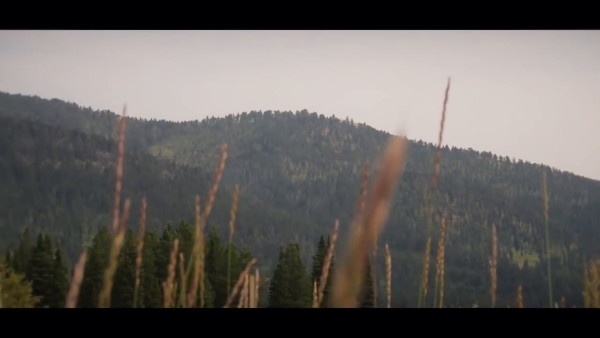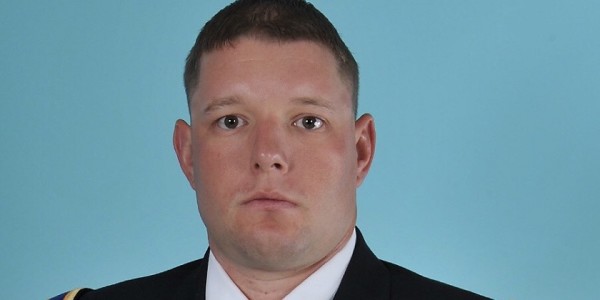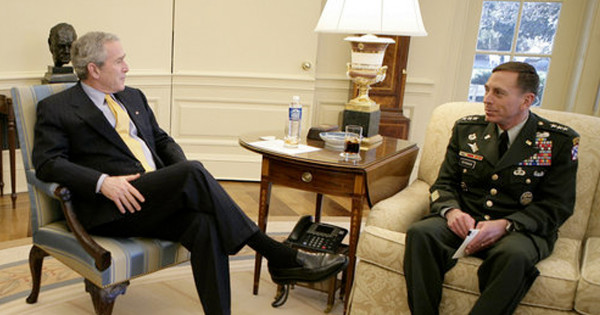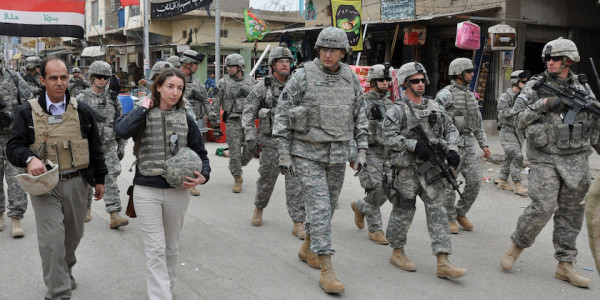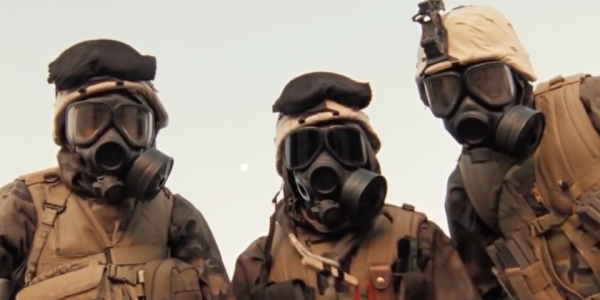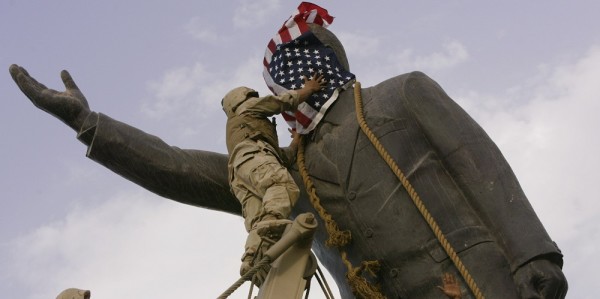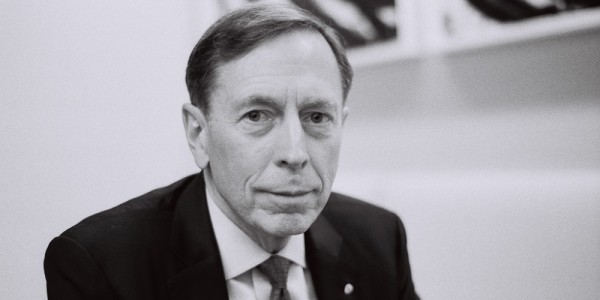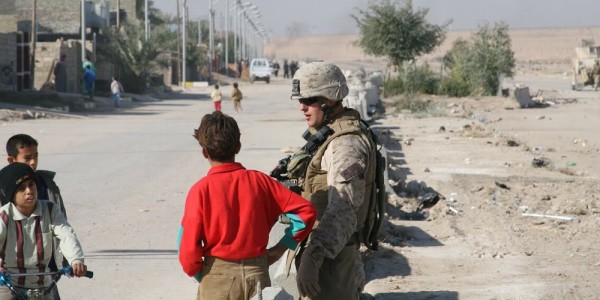When former Army Capt. Matt Gallagher saw the video of former President Bush accidentally condemning the 2003 invasion of Iraq, the moment that cut the deepest was when Bush realized his mistake and laughed about it.
Bush had intended to criticize Russian President Vladimir Putin during his speech on Wednesday in Dallas when he misspoke. Bush said that the Russian government’s oppression of any political opposition has led to the end of checks and balances, “And the decision of one man to launch a wholly unjustified and brutal invasion of Iraq.”
The former president immediately winced as he corrected himself and said, “I mean: ‘Of Ukraine.’” Then, he gave a very brief laugh, put his head down and said under his breath “Iraq too, anyway.” After his audience laughed, Bush then joked about his age and said, “75” – and that elicited even louder laughter from those attending his speech.

To Gallagher, who served in Iraq, Bush’s laugh was more revealing than the mistake itself.
“I think the snicker conjured up a lot of old, buried feelings I once had of Bush at his worst – the dismissive, cocky Decider-in-Chief who held little regard for nuance or critical examination,” Gallagher told Task & Purpose of the war, which began when the U.S. military invaded Iraq in March 2003 because the American government suspected that dictator Saddam Hussein was secretly building weapons of mass destruction. It turned out Iraq had abandoned building those weapons after the Gulf War when Bush’s father had been president.
Subscribe to Task & Purpose Today. Get the latest in military news, entertainment, and gear in your inbox daily.
“That’s the Bush I remember raging against, privately, in my college and ROTC [Reserve Officers’ Training Corps] days, the man who was determining my immediate future and that of my peers, and whose decisions ended up leaving some of them dead in Iraq, trying to make the best of his reckless, stupid war.”
Now a published author, Gallagher was commissioned as an Army second lieutenant in 2005 after graduating from Wake Forest University in North Carolina. He was assigned to the 25th Infantry Division and then spent 15 months in Iraq as a scout platoon leader from 2007 to 2009. While he was deployed, Gallagher wrote an anonymous blog about his experiences, which he was eventually ordered to stop.
On Wednesday, Gallagher tweeted that he struggled to respond to Bush’s accidental reference to the Iraq invasion. While he no longer hates Bush, the former president’s laugh stayed with him.
“The snicker is just a couple seconds, sure, but it’s so instinctual on his end,” Gallagher told Task & Purpose. “He recovers after, to his credit, and we see a more reflective and human side come out, but I can’t help but wonder how much of the other guy remains in there, still trying to justify his war of choice that took so much from both Iraq and America.”

Bush’s office did not respond to Task & Purpose’s requests for a statement to include in this story.
Sean Schofield, a Marine veteran who served in Iraq in 2003 and 2004 with the 1st Marine Division, said Bush’s error is part of a pattern of the former president saying questionable things.
A former sergeant, Schofield is currently in Ukraine, where he is training Ukrainian Territorial Defence Forces. On Thursday, Task & Purpose reached out to Schofield and asked for his reaction to Bush’s Iraq comments.
“I think this is just one more instance of him being his own worst enemy,” Schofield said. “Unfortunately, in this instance, he’s saying that America’s military was party to an unjust and brutal invasion of a foreign country, and he seemed to lack the common sense to recognize the severity of the gaffe, and then added insult to injury by laughing about it.”

Since President Bush first ordered the U.S. military to topple former Iraqi dictator Saddam Hussein in 2003, nearly 4,600 troops have been killed and more than 32,500 service members have been wounded while supporting operations in Iraq, according to the Defense Department.
Estimates for the numbers of Iraqi casualties since the 2003 invasion vary. Between 184,000 and 207,000 are believed to have been killed by 2019, according to the Watson Institute for International and Public Affairs at Brown University, R.I. As of 2020, 9.2 million Iraqis had either fled their country or were internally displaced, the institute also found.
Nothing about the invasion of Iraq or its aftermath is humorous, said retired Army Maj. Gen. Paul Eaton, senior adviser to the liberal veterans group VoteVets.
Eaton, who helped to train Iraqi forces after the invasion, said he deeply regrets the U.S. government’s decision to attack Iraq. It is an error the country needs to learn from.
He also said the failure of former Army Gen. Tommy Franks, then head of U.S. Central Command, as well as then-Defense Secretary Donald Rumsfeld to plan for stabilizing Iraq after the invasion contributed to the loss of American and Iraqi lives.
“Laughing it off as a gaffe was the worst part about it,” Eaton told Task & Purpose. “He [Bush] made a decision to go into Iraq. Not only did he make a very bad strategic decision to go to war with a country that we did not need to go to war over, but he did it badly. It was incompetently executed by the CENTCOM commander. The ill-advised humor from President Bush and those in the audience is simply appalling.”
If there is to be a final epitaph for the Iraq War, then it deserves to come from a letter that Tomas Young wrote to Bush and former Vice President Dick Cheney shortly after he entered hospice in 2013. Young joined the Army two days after the Sept. 11, 2001, attacks. In April 2004, he was shot in the spine while serving in Sadr City, a Shiite suburb of Baghdad. His wounds left him paralyzed from the waist down.
Written more than a year before his death in November 2014, Young wrote in his letter that Bush and Cheney had used, betrayed, and ultimately abandoned a generation of disabled veterans.
“My day of reckoning is upon me,” Young wrote. “Yours will come. I hope you will be put on trial. But mostly I hope, for your sakes, that you find the moral courage to face what you have done to me and to many, many others who deserved to live. I hope that before your time on earth ends, as mine is now ending, you will find the strength of character to stand before the American public and the world, and in particular the Iraqi people, and beg for forgiveness.”
The latest on Task & Purpose
- Russian troops are proving that cell phones in war zones are a very bad idea
- Air Force disciplines C-130 crew for ‘unplanned’ landing to pick up motorcycle in Martha’s Vineyard
- Commandant walks back possibility of Marines skipping boot camp
- Air Force pilots explain why the F-22 Raptor is a ‘beast’ in aerial combat
- Sailors from my old ship are dying by suicide. I may know why
Want to write for Task & Purpose? Click here. Or check out the latest stories on our homepage.

